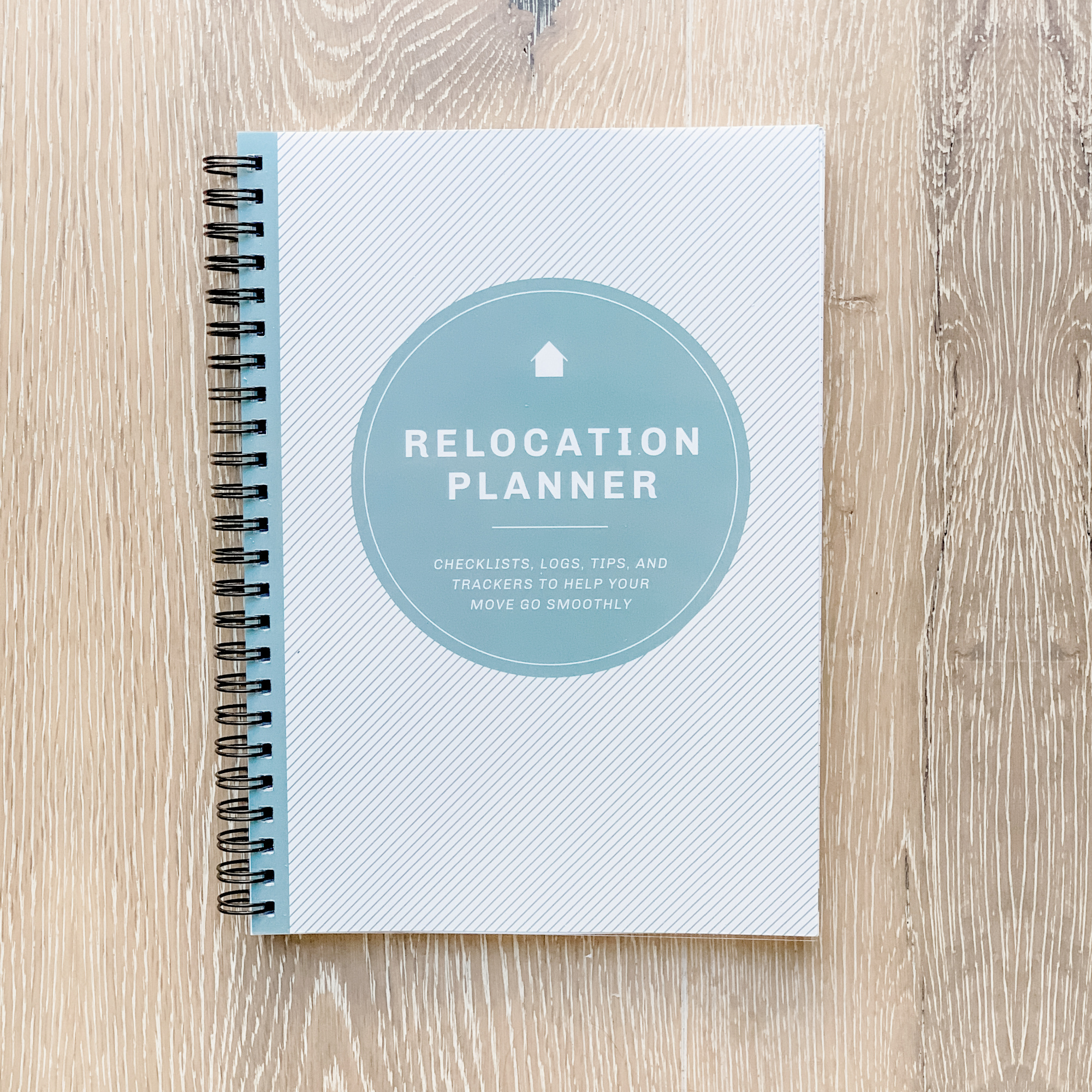In this Spotlight, our founder, Elizabeth Landry, had the pleasure of talking with Lisa Alemi of Move Mama Move. Lisa is an entrepreneur, blogger, and non-practicing physical therapist. She also happens to have already moved a whopping 15 times. Here, they speak in-depth about the Move Mama Move Relocation Planner, her top tips for a successful move, and the biggest red flag to look for when moving.
Tell us a little bit about yourself and how you came up with Move Mama Move.
Sure! I met my husband when he was in residency. He was in his second of seven years of residency and I had no clue what I was signing up for at the time! I was a Physical Therapist for 10 years prior to taking a break after having my first child. I stopped working as a PT after my first was born because his schedule was so chaotic that it was way more work for me to work as a PT, raise our child, be the primary parent, and then pay for child care. It just wasn’t feasible at the time, so I decided to stay home.
I was super conflicted with being home. I felt like I needed to be doing something that was stimulating my brain, aside from parenting, so I got into blogging back in 2017.
I have a lot of experience moving and I have so many tips and lessons I’ve learned along the way. I thought I could really impart a lot of that wisdom onto others, so I started Move Mama Move. First I put together a whole digital packet that people can print off and use at home and then I started getting requests for printed planners so I created a physical relocation planner.
Can you tell us more specifically about your planner and how people can view it on online?
You can find the relocation planner on my site at shop.movemamamove.com.
There are many versions. First, there’s the Original Edition which you can get in a physical copy or you can purchase it in a digital copy. You can fill it out on your computer or print it out and put it in a binder.
I also have a Home Search and Relocation Planner. It’s the same thing as the original planner but there’s a home search component to it. If you’re in the process of looking for a home, this is a great way to keep track of all your notes and keep things organized to help you make the best decision about where you’ll be living. It can be for rentals or for buying a home.
I also have a Premium Version that’s in a leather binder of the Home Search and Relocation Planner.
Going back to the original Relocation Planner, it’s 140 pages and there are 11 sections. Everything is created so that you can use it anytime. So the calendar, for instance, is all blank so you can use it and date it for when it’s appropriate for you.
Everything in it is planned 90 days out. There’s three months of calendar space, a 90 day checklist, 60-day checklist, 30-day checklist, and a week before the move-in day. Then there are checklists for changing your address and changing your health care providers. That was one specific component I’ve never been able to find anywhere else: how do you keep everything organized when you’re changing doctors and when your family’s changing doctors? How do you keep track of where your documents are going or who they need to be going to? So, I created a checklist for it! There’s also moving notes for the movers or moving company.
I also put together a summary of the move; where you’re going and where you’re coming from, what dates you’re supposed to be moving and then a timeline for the movers to use so everyone’s on the same page.
Included are checklists and notes to take for your current home and your new home. An inventory checklist of what you’re packing, what you’re selling, what you’re donating, what you need to buy, and a budget tracker to keep track of the expenses. Oftentimes there’s a nice tax benefit to moving, so if you keep track of things, it can pay off in the end!
What are your top three tips for someone who’s thinking about moving?
Only three? I have so many!
My first tip would be to write everything down. Keep track of dates, contacts, what’s in each box, all of your details. Write it down and have a central location for all of your information because you’re going to be communicating with different parties. Whether you’re renting or you’re buying a new house, you have people you need to keep in contact with. You’re going to have to keep everything organized. Keep everything written down and then everything will be a lot less stressful when you have it all in one place.
Another tip would be to get rid of as much as you can before you move. We’ve moved so many times and then found boxes that we were like, “Why did we ever pack this? We’ve never even used it!”. Sometimes it’s easier to pack things and just ship it and not go through it. But taking the time to go through things and get rid of what you don’t use or what you won’t be using in the future can make things much easier and cheaper. The weight of whatever you’re moving is less, less time for moving boxes, less time for you to pack and unpack. When you can get rid of things beforehand, you already know where you can donate things. Once you get to a new place and then you decide to get rid of stuff, it’s like adding a whole new piece of stress to the puzzle. So get rid of as much as you can before the move!
My third tip would be to plan for things to go off track and give yourself a little bit of grace. It’s never going to go perfect and there’s going to be a bump in the road at some point. Just know that there’s an end and eventually things will work themselves out. It might take a little bit longer than you originally planned or there might be pieces of the move that you have to kind of ‘rearrange’ or reschedule, but just know that in the end it’s going to work out. It’ll be okay.
I know that are some red flags to look out for when you’re moving. What is your best advice when negotiating with movers?
My one piece of advice is always request a ‘binding quote’. A binding quote means that whatever they give you as the estimate is the amount you pay at the end. Sometimes it can be more expensive because the company may overestimate to cover themselves, but you know what you’re paying at the end. You don’t want to get saddled with this couple thousand dollars extra charge because you had an extra set of stairs. They call it a ‘long carry’ where you have to carry items from your house to the moving truck if it’s beyond a certain distance. They can charge you extra for that. So there are lots of different ways they can throw in extra charges, but if you request a binding quote then they take all of that into consideration when they make the quote and then you know what you’re paying for in the end.
Could you let us know again how to get your planner and if you offer any discounts for physician families?
Absolutely. Go to shop.movemove.com and there you’ll find all digital and physical relocation planners. You can order directly on the site. If you use the code TMCXMMM you’ll get 20% off of your order!
Moving for residency or fellowship? Take our moving quiz to get a personalized checklist for your upcoming medical move and be sure to check out our Spotlight Interview with Moving Medicine Partners to find a real estate agent in your area.
Disclosure: We only recommend fully vetted businesses and products we would, or have used, ourselves. This post may contain affiliate links at no additional cost to you. Using these links may earn The MedCommons a small commission in order to continue our work providing physician families additional resources and free access to our online community.



